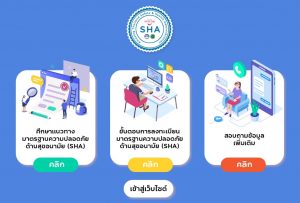Little by little, Thailand is preparing itself to regain former glory as one of the most traveled destinations in the world. Less impacted by the pandemic, the country is one of the first few to gradually ease lockdown restrictions. It has become a bellwether for other tourism-reliant countries.
So, in order to kickstart the economy, Thailand is readying its travel and tourism industry for the relaunch. The devastating consequences of the shutdown have left businesses reeling—how to commence again?
“Travel tech startups could be the key element to empower industry players who are struggling,” says Victor Chua, managing director of Vynn Capital, the firm behind the region’s first travel tech report. “Given their inherent agile nature, they could help provide a new channel of income and a source of knowledge on new norms and travel habits as the tourism industry resets.”
The ability to be agile gains critical importance in a crisis. “No one planned for a 95 per cent drop in tourism,” remarks Cheryl Ng, founder and CEO of travel discovery platform Lemi. “Instead of trying to predict where the economy will be in 12 or 24 months, ensure your organisation is able to react, to change quickly. Be able to roll out new features when you see an opportunity.”
While the situation continues to be fluid and hard to predict, domestic travel is likely to rebound first, as observed after the SARS pandemic in 2003. While domestic travel revenue is expected to pick up, it is insufficient to mitigate the gaping loss of foreign tourists’ receipts. Any increase in domestic travel spending would therefore be an economic boon. The Thai government played its part with the launch of the “We Love Thailand” campaign to promote local products and attractions.
Tourism at home
Last month, Klook initiated Klook Home across 14 markets, to stay engaged with consumers and help merchant partners digitize their offerings. This was a response to internal data in April where 60% of searches across APAC and Europe related to domestic travel. Markets with stay-home restrictions can access home-based programs such as virtual interactive experiences. Markets with eased restrictions, such as Thailand, can leverage on lists of local attractions.
“With the increased focus on physical distancing, travelers might be looking to avoid high-density places. Search trends have shown that outdoor activities such as hiking, cycling, and kayaking are gaining in popularity,” says Marcus Yong, VP of marketing at Klook.

But the Land of Smiles will be keeping the face masks on as government authorities seek to brand itself as a safe haven from the coronavirus.
Once the flight ban is lifted, Thailand’s Tourism and Sports Ministry will be zeroing in on tourists with high spending power, coming from China, South Korea, and the ASEAN neighbors. The ministry has floated the idea of long-stay packages for “quality tourists” seeking disease-free destinations.
Luxury travel is synonymous with “high touch” services. Travel brands such as hotels delight those quality travelers with personalized and tailored experiences. However, social distancing and increased safety standards might mean that brands are not able to engage this group via personal exchanges as frequently as they would like to.
Smarter solutions, less human
For Thailand’s strategy to work, the travel industry has to turn to innovative solutions to be able to continue delivering the same elevated standard of service. This could be in the form of a smart digital concierge that can analyze data of a guest profile to make recommendations and automate requests. Location-based technologies can enable real-time recommendations for places that allow safe distancing and less waiting time.
“High touch” meets “high tech”. The two worlds can come together if the technology behaves and communicates with the same etiquette as a hospitality-focused human being. “This is a time for everyone to adapt, innovate, and refocus priorities,” says Yong. “Tourists across the globe increasingly prioritize health and safety and these are non-negotiables moving forward.”
Klook is collaborating with the Tourism Authority of Thailand in the “Amazing Thailand Safety and Health Administration (SHA)” project to prepare the industry for the return of tourism and help develop confidence in Thailand as a destination. The first phase was launched when the government announced the reopening of shopping malls in Bangkok. Subsequent stages include the promotion of domestic experiences and will end with international travel.

In the same vein, Chua encourages startups to be proactive in initiating conversations with the government as this is “the best time for creativity and traditional industry players are more likely to be open to new ideas.”
But should travel tech startups not worry about themselves first? After all, startups tend to have a short financial runway and are not impervious to the impacts of COVID-19, especially if they are travel-related. Perhaps part of the solution could lie in travel tech startups, but they too, must adapt to a post-COVID environment and assess its own market-fit.
Not all startups are equally impacted
If we parse the umbrella term of “travel tech”, we are able to see the asymmetric impact of COVID-19 across different subtypes. Referencing findings from the travel tech report, Chua predicts that there are two types of travel businesses that see most damage—those relying on earlier trends that were set by online travel agencies and those who haven’t been able to diversify their exposure to adjacent industries, like F&B or transportation. On the other hand, he thinks that B2B-types of services and those operating as a platform or marketplace are likelier to thrive.
At the end of the day, capable startups that passed the stress test of COVID-19, that evolve towards the future of travel with government and industry partners, will emerge as winners.

